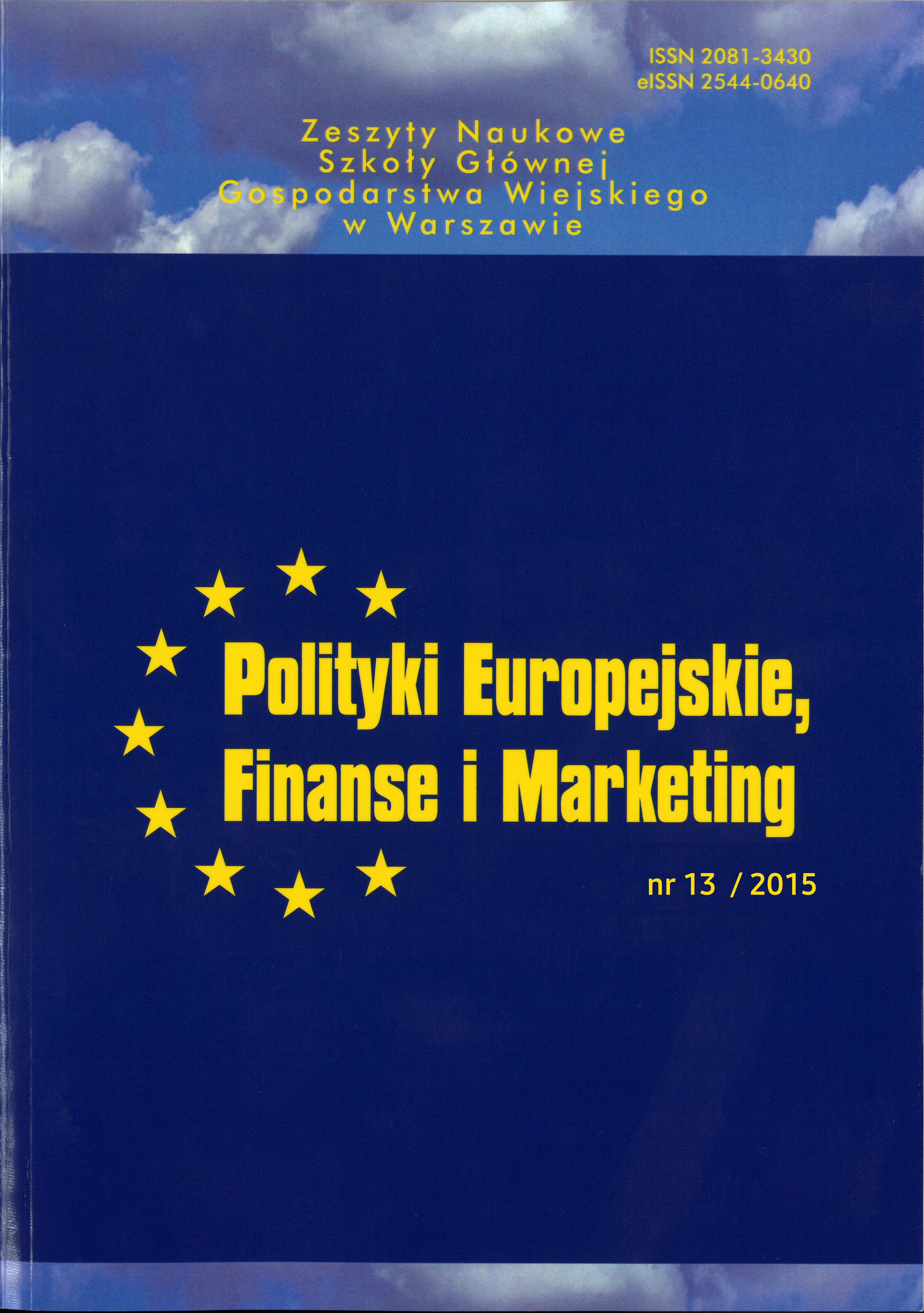Main Article Content
Article Details
Alexander S.: The Voluntary Simplicity Movement: Reimagining the Good Life Beyond Consumer Culture, The International Journal of Environmental, Cultural, Economic & Social Sustainability vol. 7 iss. 3/2011, p. 133-150. (Crossref)
Bekin C., Carrigan M., Szmigin I.: Defying marketing sovereignty: voluntary simplicity atnew consumption communities, Qualitative Market Research: An International Journal vol. 8no. 4/2005, p. 413-429. (Crossref)
Botsman R., Rogers R.: What's Mine Is Yours: The Rise of Collaborative Consumption,Harper Business, New York 2010.
Boujbel L., D'astous A., Voluntary simplicity and life satisfaction: Exploring the mediatingrole of consumption desires, Journal of Consumer Behaviour, vol. 11/2012, p. 487-494. (Crossref)
Club of Rome http://www.clubofrome.org/?p=375 [accessed on Dec. 29, 2014].
Craig-Less M., Hill C., Understanding Voluntary Simplifiers, Psychology & Marketing, vol.19(2)/Feb 2002, p. 187-210. (Crossref)
Dąbrowska A., Janoś-Kresło M. (ed.): Konsumpcja w krajach Europy Środkowo-Wschodniej, PWE, Warszawa 2007.
Elgin D.: Voluntary Simplicity. Toward a Way of Life That Is Outwardly Simple, Inwardly Rich, Second edition, Harper Collins, New York 2010.
Etzioni A.: Voluntary Simplicity: Characterization, Select Psychological Implications, and Societal Consequences, [In:] Hodgson B. (ed.): The Invisible Hand and the Common Good,Chapter 16, Springer 2004, p. 378-405. (Crossref)
European Commission, http://europa.eu/rapid/press-release_CES-14-3_pl.htm [accessed on Jan. 5, 2015].
Fair Trade in Europe 2001, Jan 2001. EFTA - European Fair Trade Association,http://www.european-fair-trade-association.org/efta/Doc/FT-E-2001.pdf [accessed on Jan. 15,2015].
Gershwin P.: Simplicity and the City: Understanding the Voluntary Simplicity Movement inMelbourne, Independent Study Project (ISP) Collection Paper 867/2010,http://digitalcollections/isp_collection/867 [accessed on Dec. 1, 2014].
Huneke M. E.: The Face of the Un-Consumer: An Empirical Examination of the Practice of Voluntary Simplicity in the United States, Psychology & Marketing vol. 22 (7)/July 2005, p.527-550. (Crossref)
International Institute for Sustainable Development, Oslo Roundtable on Sustainable Production and Consumption http://www.iisd.ca/consume/oslo004.html [accessed on Nov.20, 2014].
Jackson T.: The Challenge of Sustainable Lifestyle, [In:] State of the World 2008: Innovations for a Sustainable Economy. The Worldwatch Institute 2008, p. 45-60,https://www.worldwatch.org/files/pdf/SOW08_chapter_4.pdf [accessed on July 28, 2014].
Kennedy E. H., Krahn H., Krogman N. T.: Downshifting: An Exploration of Motivations,Quality of Life, and Environmental Practices, Sociological Forum vol. 28 no. 4/2013, p. 764-783. (Crossref)
Kronenberg J., Iida N.: Simple Living and Sustainable Consumption, Problems of Sustainable Development vol. 6, no. 2/2009, p. 67-74.
Schneider F., Kallis G., Martinez-Alier J.: Crisis or opportunity? Economic degrowth for social equity and ecological sustainability. Introduction to this special issue, Journal of Cleaner Production, 1820/10, 511-518. (Crossref)
Shaw D., Moraes C.: Voluntary Simplicity: an exploration of market interactions.International Journal of Consumer Studies 33/2009, p. 215-223. (Crossref)
Thoreau H. D.: Walden, czyli życie w lesie, Dom Wydawniczy REBIS, Poznań 2010.
Veenhoven R.: World Database of Happiness, Erasmus University Rotterdam, The Netherlands, http://worlddatabaseofhappiness.eur.nl [accessed on July 29, 2014].
Wu D. E., Boyd Thomas J., Moore M., Carrol K.: Voluntary simplicity: The Great American Apparel Diet, Journal of Fashion Marketing and Management, vol. 17, no. 3/2013, p. 294-305. (Crossref)
Zavestoski S.: The Social-Psychological Bases of Anticonsumption Attitudes, Psychology&Marketing vol. 19 (2)/February 2002, p. 149-165. (Crossref)
Downloads
- Jacek Kamiński, Makromarketing jako część nauki o marketingu , Zeszyty Naukowe SGGW, Polityki Europejskie, Finanse i Marketing: Nr 13(62) (2015)
Możesz również Rozpocznij zaawansowane wyszukiwanie podobieństw dla tego artykułu.
- Jolanta Zrałek, Motywy zachowań proekologicznych w kontekście zmieniającego się poziomu świadomości ekologicznej Polaków , Zeszyty Naukowe SGGW, Polityki Europejskie, Finanse i Marketing: Nr 9(58) (2013)
- Jolanta Zrałek, Kim jest zrównoważony konsument? W poszukiwaniu nowej koncepcji człowieka w zrównoważonej gospodarce , Zeszyty Naukowe SGGW, Polityki Europejskie, Finanse i Marketing: Nr 17(66) (2017)
- Aleksandra Burgiel, Problemy badań konsumentów w kwestiach wrażliwych – kilka obserwacji na przykładzie zachowań emulacyjnych , Zeszyty Naukowe SGGW, Polityki Europejskie, Finanse i Marketing: Nr 10(59) (2013)

Utwór dostępny jest na licencji Creative Commons Uznanie autorstwa – Użycie niekomercyjne 4.0 Międzynarodowe.





